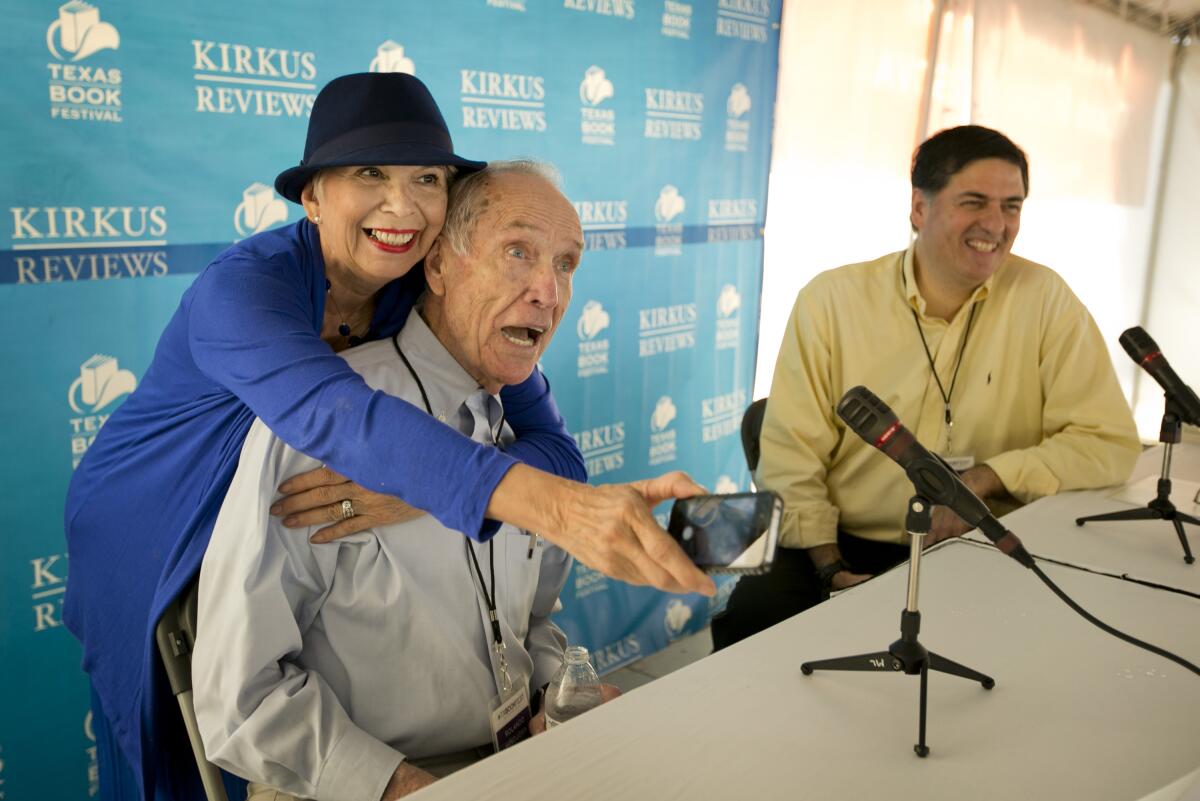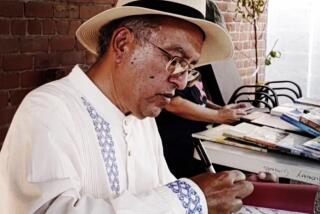Pioneering Texas Chicano novelist Rolando Hinojosa-Smith dies

- Share via
DALLAS — Rolando Hinojosa-Smith, an award-winning Texas author who in the 1970s began writing a series of novels that told the stories of people living in a fictional county along the Texas-Mexico border, has died. He was 93.
Hinojosa-Smith, an English professor at the University of Texas at Austin for more than 30 years, died April 19 at an assisted living facility for dementia patients near Austin, said his daughter, Clarissa Hinojosa.
Hinojosa-Smith, who wrote in both English and Spanish and published novels, essays and poems, is known for his “Klail City Death Trip” series, which chronicles the changes that have taken place in South Texas’ Rio Grande Valley, where he grew up.
“The idea was the balance of life and death and to show humanity at all of its stages and people at all of their stages in life,” Hinojosa said.
She said it was important to her father, who was born 1929 in Mercedes, that “the world know about the Valley and love it as much as he did.”
John Morán González, an English professor at UT-Austin, said the series “provided a kind of narrative and fictional form of an area of the country and a group of people who have seldom I think been fully recognized as part of the United States.
“I think that portrait, it’s really important,” he said.
The National Book Critics Circle honored Hinojosa-Smith with its 2013 Ivan Sandrof Lifetime Achievement Award, which is given to someone who makes a significant contribution to book culture.
Jaime Armin Mejía, an associate professor of English at Texas State University, said Hinojosa-Smith not only helped expose the general public to Mexican American literature but also opened up the way for others to get published.
“I don’t think we would be where we are today had it not been for the efforts” of Hinojosa-Smith, he said.
Hinojosa-Smith’s daughter said he loved teaching and gave lectures around the world talking about his writings.
“He was charm personified,” Hinojosa said. “He was one of those people who, he could walk into a room and he just had this force of personality and people would just gravitate to him without him having to say a word.”
More to Read
Start your day right
Sign up for Essential California for the L.A. Times biggest news, features and recommendations in your inbox six days a week.
You may occasionally receive promotional content from the Los Angeles Times.






